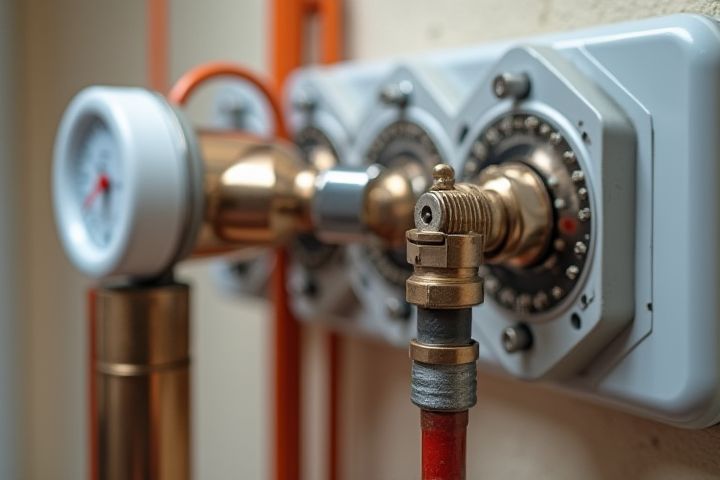
Improving home insulation is crucial for reducing heating costs, as it prevents warm air from escaping and cold air from entering. Sealing gaps around windows, doors, and ducts with weatherstripping or caulk can significantly enhance energy efficiency. Upgrading to a programmable thermostat empowers you to optimize your heating schedule, ensuring that your home is warm only when occupied. Utilizing energy-efficient heating systems, such as heat pumps or smart radiators, can lead to substantial savings on utility bills. Regular maintenance of your heating system, including annual inspections and filter replacements, enhances performance and longevity while minimizing operational costs.
How To Lower House Heating Costs
Improve home insulation
Improving home insulation can significantly reduce your heating costs by minimizing heat loss. Upgrading insulation in attics, walls, and floors can save you up to 20% on your energy bills. Weatherstripping and sealing drafts around windows and doors can further enhance your home's energy efficiency. Investing in high-quality insulation materials, such as spray foam or fiberglass, can provide lasting benefits, ensuring your home remains warm during the colder months while keeping costs down.
Install a programmable thermostat
Installing a programmable thermostat significantly reduces house heating costs by allowing you to set specific temperatures for different times of the day. You can program the thermostat to lower the heat when you're not home or during nighttime, ensuring energy is not wasted. Many modern models even enable remote access via smartphone apps, giving you control over your heating system from anywhere. By optimizing your heating schedule, you can improve energy efficiency, leading to lower utility bills and a reduced carbon footprint.
Seal air leaks
Sealing air leaks can significantly reduce heating costs by preventing warm air from escaping and cold air from entering your home. Common areas to inspect include windows, doors, and electrical outlets, as they often account for up to 30% of energy loss. Using weather stripping and caulking can seal gaps effectively, and adding insulation to attics and crawl spaces minimizes air exchange. By addressing these leaks, you could save between 10% and 20% on your heating bills annually, contributing to both your financial savings and environmental sustainability.
Use energy-efficient windows
Energy-efficient windows play a crucial role in reducing house heating costs by minimizing heat loss and enhancing insulation. These windows are typically designed with multiple panes, low-emissivity coatings, and insulated frames that help maintain your home's warmth during colder months. By upgrading to energy-efficient windows, you not only improve comfort but also lower your monthly energy bills, making your home more cost-effective in the long run. Investing in high-quality windows can significantly contribute to maintaining a stable indoor temperature, ultimately reducing your reliance on heating systems.
Maintain HVAC system
Regular maintenance of your HVAC system can significantly reduce heating costs, ensuring it operates at peak efficiency. Change air filters every 1-3 months and schedule professional inspections annually; this can improve energy efficiency by up to 15%. Sealing ducts can also enhance performance and cut heating expenses by preventing air leaks, potentially saving you $100 or more annually. Investing in a programmable thermostat allows you to optimize your heating schedule, achieving savings of approximately 10% on your heating bill.
Adopt smart heating habits
Adopting smart heating habits can significantly reduce your house heating costs. Set your thermostat to 68degF during the day and lower it by 10-15degF at night or when you are away for long periods. Consider using programmable thermostats or smart home systems to automatically adjust temperatures based on your schedule, which can save you up to 10% on your heating bill. Regular maintenance, such as cleaning or replacing filters, can also enhance efficiency, ensuring that your heating system operates at peak performance and potentially reducing costs by 5-15%.
Utilize thermal curtains
Utilizing thermal curtains can significantly lower your house heating costs by creating a barrier against heat loss. These specialized curtains are designed with insulating materials that minimize the transfer of cold air, keeping warmth inside during winter months. By effectively blocking drafts, thermal curtains help maintain a consistent indoor temperature, reducing the reliance on heating systems. For optimal results, ensure that these curtains are closed during the night and opened during sunny days to take advantage of natural warmth.
Maximize natural sunlight
Maximizing natural sunlight can significantly reduce your house heating costs by harnessing free energy from the sun. Strategically positioning mirrors and reflective surfaces in your living spaces can help direct sunlight deeper into the room, enhancing warmth and brightness. Consider using light-colored window treatments that allow ample sunlight while insulating against cold drafts. By optimizing the placement of your furniture to avoid blocking windows, you can create a sunlit environment that minimizes reliance on artificial heating, ultimately leading to lower energy bills.
Limit heat loss from fireplace
To effectively lower house heating costs and limit heat loss from your fireplace, ensure that the chimney damper is closed when the fireplace is not in use; this can prevent warm air from escaping and cold air from entering. Consider installing a glass fireplace door, which can create a barrier that reduces heat loss while allowing you to enjoy the ambiance of the fire. Installing a top-sealing damper can further enhance insulation, minimizing drafts and maintaining your home's internal temperature. Regular maintenance of your chimney and fireplace, such as inspections and cleanings, can also optimize efficiency and reduce energy expenses.
Reduce water heating costs
To lower your house heating costs, focus on reducing water heating expenses, which can account for up to 18% of your energy bill. Insulating your water heater and pipes can prevent heat loss, optimizing energy efficiency. Additionally, setting your water heater thermostat to 120 degrees Fahrenheit not only saves energy but also reduces the risk of scalding. Regularly flushing the tank every six months also helps maintain efficiency and can extend the lifespan of your water heater.
